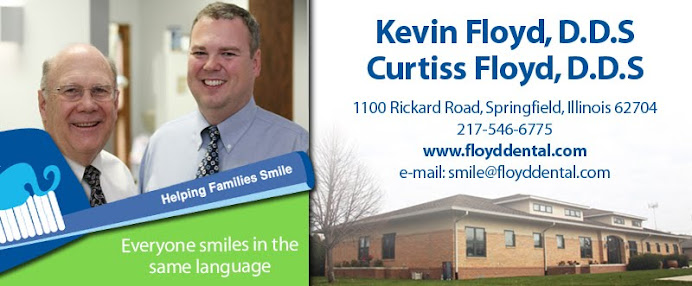A. Dental Visits
The dentist should decide how often each child should be seen. Possibly every 3 to 6 months for self applied fluorides and instructions in preventive dental care. Non threating trips to the dentist pay big dividens if and when some dental work becomes necessary. These trips build familiarity and trust with the dentist and the dental staff. Conversely,a lifetime of fear of the dentist can begin when the child's first visit includes needed emergency dental work. More frequent visits may be necessary to control active dental disease. Pit and fissure sealants may be recommended for susceptable teeth.
B. Oral Hygiene
The dentist or hygienist will teach proper tooth cleaning, demonstrate techniques for holding the child for easier cleaning. Follow up examinations will evaluate the effectiveness of the home care, working with both parent and child to master excellent oral hygiene.
C. Dietary Regime
During the second year baby enjoys gradually shifting to a diet of plain table foods selected from the Food Pyramid. His/her appetite and rate of growth are slower during the second year of life. He/she should be allowed to feed him/herself from a plate with small servings of several items on it. A spoon or the fingers can be used and mike is given for him/her to drink from a "sippy" cup. The following amounts are guides for planning the child's diet:
Milk Group Up to 3-4 cups daily. More than one quart of milk daily is unecessary.
Meat Group 1-2 (2-3oz.) servings daily, including plain chopped meats, fish, and chicken, egg, cheese and peanut butter.
Vegetable/Fruit Group 4-5 (1/2 cup) servings daily, including a wide variety consisting of cooked and raw vegetables, fresh fruit and unsweetened fruit and vegetable juices. A citrus fruit or tomato is needed daily as a source of vitamin C.
Grains 2-3 servings daily. Continuing use of iron- frotified infant cereal is recommended until 18 months of age. Other whole grain, unsweetened cereals may also be used and whole-grain breads, crackers, rice, etc., should be added.
Supplements - Fluoride (if not in the water supply) should be prescribed in the appropriate dosage. Other vitamins and minerals are unnecessary.
Other Foods - Regular use of cookies,candy,cake sugars, soft drinks,sugary fruit drinks, snack foods and chips should be avoided. Read labels! This destroys appetite for meals, risks development of dental caries (cavities) and promotes improper lifelong eating habits. It should be remembered that young children learn and aquire food preferences by example set by parents and other family members. Food and sweets should not be used as rewards or taken away as punishment. Nutritous snacks for optimal dental health should be used throughout toddler and preschool years.Fresh fruit, raw vegetables, yogurt, cheese, meat and peanut butter on whole grain crackers make good snacks.
D. Dental Habits
Continued monitoring of finger and sleeping habits.
E. Arch Development
The dentist will check for any abnormalities in arch development and tooth eruption patterns. Radiographs (X-Rays) of suspected pathology or abnormalities may be recommended.
F. Traumatic Injury
Facial traumatic injuries are more likely at this age and should be seen and treated by the dentist immediately.
G. Fluorides
Fluoride should be continued in prescription if indicated. However fluoride toothpastes should not be used until the child can expectorate (spit) and rinse the toothpaste out of the mouth. Swallowing of fluoridated toothpaste can cause GI upset. There are non-fluoridated, non foaming, xylitol flavored toothpastes on the market that are excellent for children to start with.
This should now have baby on the way to their prettiest smile!
Thursday, June 17, 2010
Subscribe to:
Post Comments (Atom)


No comments:
Post a Comment